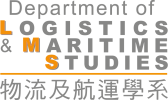- Can I attend the conference online?
Yes. The conference will adopt a hybrid mode with both online presentation and in-person presentation on The Hong Kong Polytechnic University campus.
- Do I need a visa to attend the conference?
As any international inbound travelers can pass by and stay in Hong Kong for seven days, and our conference is for at most three days. It is enough for any conference participant.
Citizen from about 170 countries can visit HK without visa. Please see the webpage for the visa requirements for different countries: https://www.immd.gov.hk/eng/services/visas/visit-transit/visit-visa-entry-permit.html
- What are the current arrival and quarantine arrangements for inbound persons?
Please refer to this link: https://www.coronavirus.gov.hk/eng/inbound-travel.html
- Can I leave Hong Kong during the medical surveillance period?
There is no departure restriction on persons under medical surveillance. However, persons travelling from Hong Kong to the Mainland or Macao are subject to the special testing arrangement (https://www.coronavirus.gov.hk/eng/special-outbound-test.html) to undergo an additional free rapid nucleic acid test prior to their departure via land boundary control points (BCPs) or the airport. Only those who received a negative result can continue with their journeys. To prevent the exportation of cases and to support the nation's anti-epidemic efforts, persons subject to Amber Code restrictions are not allowed to undergo the relevant special nucleic acid test at land BCPs or the airport, meaning that inbound persons from overseas places or Taiwan are not allowed to transit to the Mainland or Macao within the three days upon arrival at Hong Kong.
- How to define the period of relevant travel history?
The relevant travel history is back counted from the reference day as Day 0, then back count for 7 days. i.e. if 26 Sep 2022 is the reference day, then the period of relevant travel history counts from 19 to 26 Sep 2022.
- What if a person misreports his travel history?
The Prevention and Control of Disease (Disclosure of Information) Regulation (Cap. 599D) empowers authorised officers to require any person to provide or disclose information that is relevant to identification and tracing of persons who may be at risk of contracting the disease, such as travel history, places they have visited or people they have come into contact with, etc. in relation to the prevention and control of the spread of diseases. A person commits a criminal offence if he / she fails to comply with the requirement to provide information, or gives to an authorised officer any false or misleading information. The maximum penalty for such offence is a fine of $10,000 and imprisonment for six months. The Centre for Health Protection will, through its hotlines (183 0111), allow members of the public to verify the identity of authorised officers if necessary.
The personal data obtained for COVID-19 contact tracing will only be used by the Department of Health or relevant department(s) for epidemic prevention purposes, and the arrangements for handling the personal data would be in strict compliance with the Personal Data (Privacy) Ordinance (Cap. 486).
- If I transit via Hong Kong without entering Hong Kong, would the quarantine measures be applicable to me?
Quarantine measures are only applicable to persons who enter Hong Kong. The quarantine requirement does not apply to transit passenger who arrives at the Hong Kong International Airport or enters the waters of Hong Kong solely for the purpose of leaving Hong Kong and, while in Hong Kong, does not pass through immigration control.
- Do I need to comply with the respective boarding requirements applicable to Taiwan/overseas places if I just transit at Taiwan/overseas places with layover inside the airport terminal without passing through the immigration control point (i.e. have not entered the specified place)?
Only inbound persons satisfying all the following conditions during transit, will be regarded as NOT having stayed in Taiwan/overseas places:
- a person boarded, in a place, a conveyance that, after the person had boarded it, stopped at Taiwan/overseas places; and
- the person did not leave the conveyance in Taiwan/overseas places; and
- the person’s journey on that conveyance ended subsequently outside Taiwan/overseas places.
Therefore, once the inbound person leaves the aircraft during stopover at Taiwan/overseas places, the inbound person will be regarded as having stayed in Taiwan/overseas places, thus the inbound person has to comply with the requirements specified.



